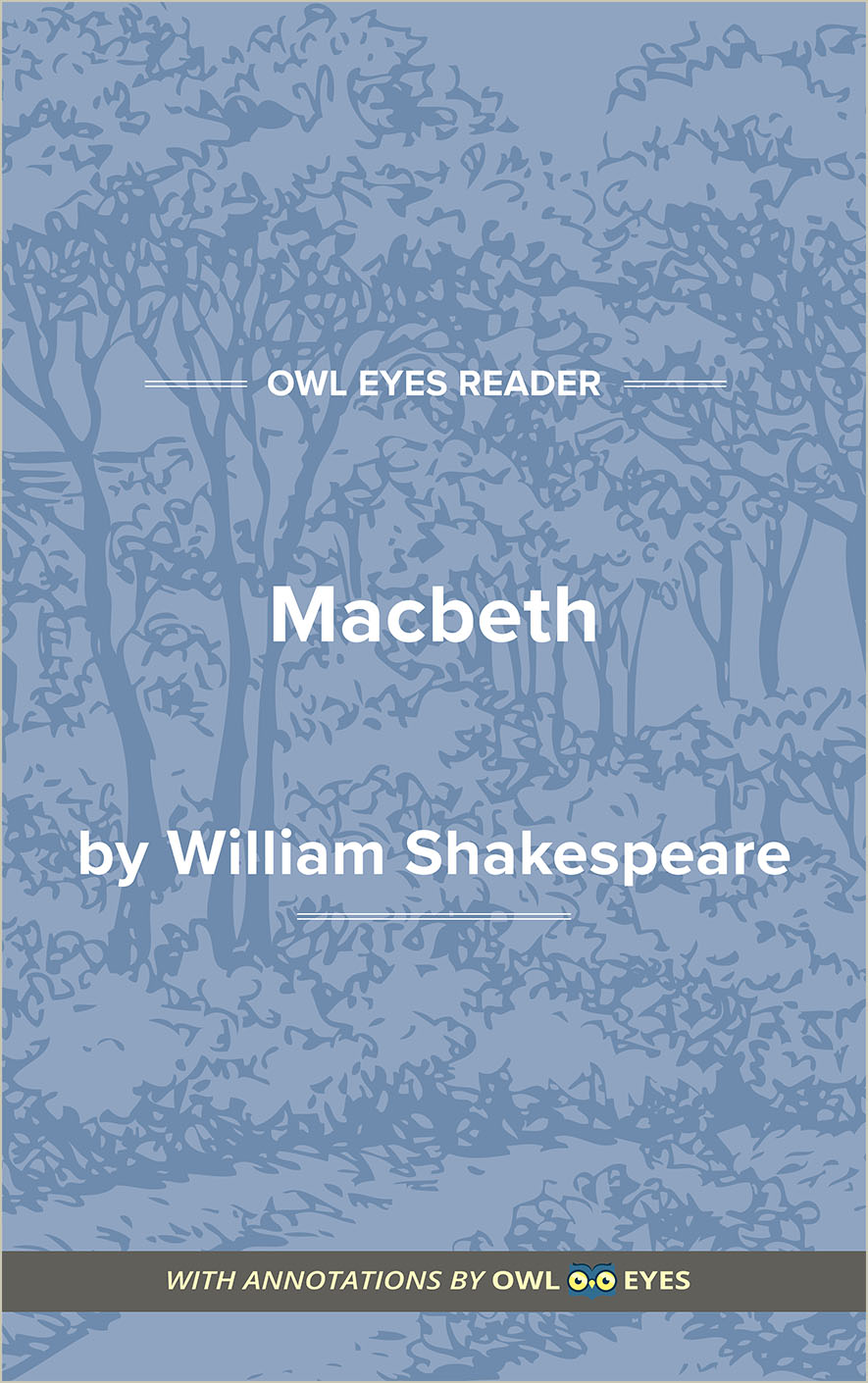Analysis Pages
Allusion in Macbeth
Allusion Examples in Macbeth:
Act I - Scene II
🔒"Or memorize another Golgotha..." See in text (Act I - Scene II)
Act II - Scene I
🔒"Hecate's..." See in text (Act II - Scene I)
Act II - Scene II
🔒"Neptune's ocean..." See in text (Act II - Scene II)
"wash this blood Clean from my hand..." See in text (Act II - Scene II)
Act II - Scene III
🔒"The great doom's image!..." See in text (Act II - Scene III)
"Gorgon..." See in text (Act II - Scene III)
Act III - Scene I
🔒"gospell'd..." See in text (Act III - Scene I)
"Mark Antony's was by Caesar..." See in text (Act III - Scene I)
Act III - Scene V
🔒"Acheron..." See in text (Act III - Scene V)
Act IV - Scene I
🔒"What, will the line stretch out to the crack of doom?..." See in text (Act IV - Scene I)
"Harpier..." See in text (Act IV - Scene I)
Act V - Scene VIII
🔒"On mine own sword..." See in text (Act V - Scene VIII)

